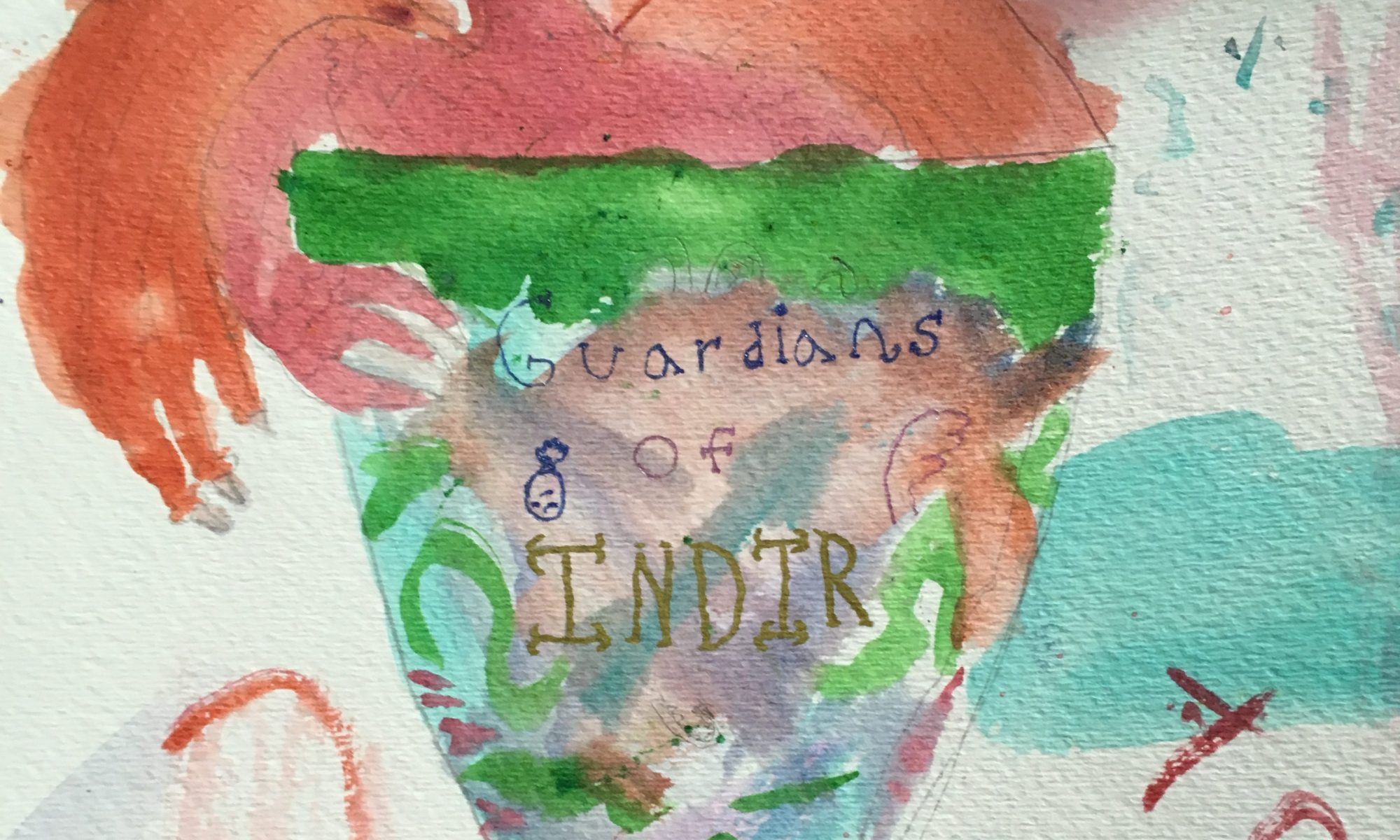This is the fourth episode taken from our tenth recording session, which we played and recorded back in June 2018. The story so far: the city-state of Indir, a multi-racial stronghold of few mammals with a reptilian majority dominated by dragonborn, is in a war against the aggressor elven nation of Valtaryn and its dwarven allies. The heroes intercepted a group of elven commandos, narrowly preventing the elves from taking control of a complex hidden beneath Indir. The complex is the remains of a buried tower created by a race of ancients called “humans,” who were legendary for their cruelty and brutally advanced technology. The party retrieved a number of human artifacts from the tower, which mysteriously erupted from below Indir, rising up to a majestic height of fifty feet. Elves and dwarves have since taken control of the tower, using magical portals that enabled access. The Indiran military has evacuated and blockaded the neighborhood nearest the tower. As the two forces are in temporary equilibrium, the Indiran leaders have thrown a festival to reassure the populace that the world isn’t coming to an end, while one of the leaders, Karen Balthorek, has secretly met with the party during the festival to discuss next steps for saving Indir’s population from extermination. Running with the suggestion of one of Karen’s magic advisors, the gnome sage Alfor, the party has just devised a plan to scale the tower and try to destroy or deactivate the portals.
That’s where this episode begins. But the party has some time – about an hour – to prepare for the attack on the tower. What are they going to do in that time? Considering this question (and how the players answered it) prompts me to talk a bit about Ape Adventures.
In case “Ape Adventures” is an expression unfamiliar to you, let me explain. There’s a well-known sequence in the 2008 movie Indiana Jones and the Kingdom of the Crystal Skull in which Shia LeBeouf’s character, Mutt, gets separated from the rest of the characters during a chase sequence in the jungle. He’s stranded on his own, and the film cuts back and forth between the main plot with all the other characters and scenes of Mutt up in the tree canopy by himself. He is at a loss for what to do, but then some curious monkeys descend to investigate. Mutt befriends those monkeys, and they in turn teach him how to swing from creepers to vines. Soon Mutt and his primate pals are joyously speeding through the jungle on vines like Spider-Man swinging on webs. Eventually Mutt is reunited with the main plot, and neither he nor anybody else ever discusses what happened to him as he leaves his monkey mates behind forever. It’s pretty universally lambasted as a ridiculous sequence of events, but from it has arisen the expression “Ape Adventure” (even though Mutt’s buddies are monkeys, not apes. People like their alliteration!), which is used by writers to refer to a sequence in a book, film, or TV show where one character leaves the rest of the group and has a significant experience that is never discussed with anyone else once they return to the group.
Back in episode 30, Squeak went off on an Ape Adventure of his own. But this episode of “The Guardians of Indir” campaign involves each character splitting off from the group for their own Ape Adventures. It’s something that happens pretty frequently in role-playing games: either the party splits up so that each character can pursue their own interests (as in this episode), or one character gets separated or chooses to leave the group to have a little private time (as in episode 30). In D&D, it’s a very common trope that the thieves will absent themselves while the rest of the party is asleep…in order to pursue some side hustle in secret. Players of sneaky characters particularly love to do this, but players of any and all types of PCs will be in this situation from time to time. How do you handle these kinds of situations at your table?

